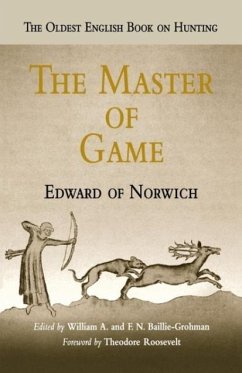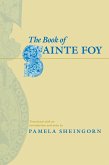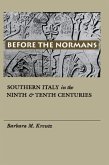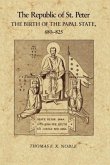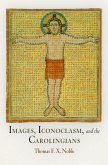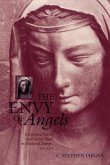The Master of Game Edward of Norwich. Edited by William A. and F. N. Baillie-Grohman. Foreword by Theodore Roosevelt "Of exceptional interest for the light shed on the ethos, style, and tastes of the secular aristocracy of the later Middle Ages. . . . A real boon to the historian. . . . For those of us who still admire and cherish the huntsman's now threatened world, The Master of Game has a particular appeal."--London Review of Books The Master of Game is the oldest and most important work on the chase in the English language. Based primarily on Gaston de Foix's Livre de chasse, originally composed in 1387, The Master of Game was written by Edward of Norwich at his leisure between 1406 and 1413, mostly while being held prisoner for having treasonous designs against his cousin, Henry IV. While much of the book is almost an exact translation of de Foix, Edward added five chapters of his own to form the major source for our knowledge of the medieval hunt. The book begins with a description of the nature of popular quarry, such as the hare, deer, and badger, including their behavior, characteristics, and even smells, and then moves to a discussion of various hunting dog breeds and how to train them. The medieval chase was a ritual event, so the book continues with an explanation of the various rules and techniques for a successful hunt, including how food was to be distributed among the hunters, the support persons, and the dogs. Weapons and traps of choice are also described, as well as the different horn calls used for communication. The Master of Game is a unique text for naturalists, hunters, and persons interested in social history. Although hunting is nowadays far removed from most people's experience, it was of major interest in the time of Edward of Norwich for ritual, sport, and, of course, food. Some knowledge of the chase was essential for all persons of medieval times. This edition, the first paperback ever of the original version edited in 1909, includes a hearty foreword by Theodore Roosevelt, who adds some important contextual information about the chase and draws on his own vast hunting experience. A delight to read, even for those who are not keen on the sport, The Master of Game has, as one review exclaimed," all Chaucer's freshness, love of the open sky and fragrant woodland." Edward of Norwich, Second Duke of York (1373?-1415) was cousin of King Richard II and became a supporter of the House of Lancaster in 1399. He was killed at the Battle of Agincourt. William A. Baillie-Grohman (1851-1921) was an outdoor writer, adventurer, and explorer who spent much of his life developing business interests in British Columbia, Canada. Florence Nickalls Baillie-Grohman was often his collaborator. Theodore Roosevelt (1858-1919), the twenty-sixth President of the United States, was an avid outdoorsman and wrote extensively about the wilderness and big-game hunting. 2005 360 pages 5 x 7 1/2 24 illus. ISBN 978-0-8122-1937-1 Paper $22.50s £15.00 ISBN 978-0-8122-0096-6 Ebook $22.5s £15.00 World Rights History Short copy: This first paperback edition ever of the oldest English book on hunting includes a hearty introduction by Theodore Roosevelt.
Hinweis: Dieser Artikel kann nur an eine deutsche Lieferadresse ausgeliefert werden.
Hinweis: Dieser Artikel kann nur an eine deutsche Lieferadresse ausgeliefert werden.

